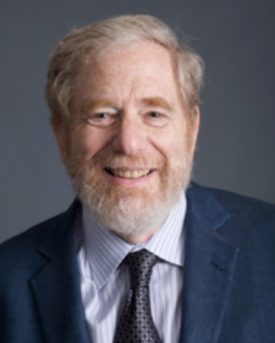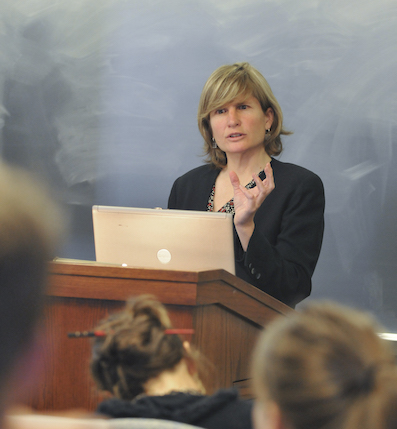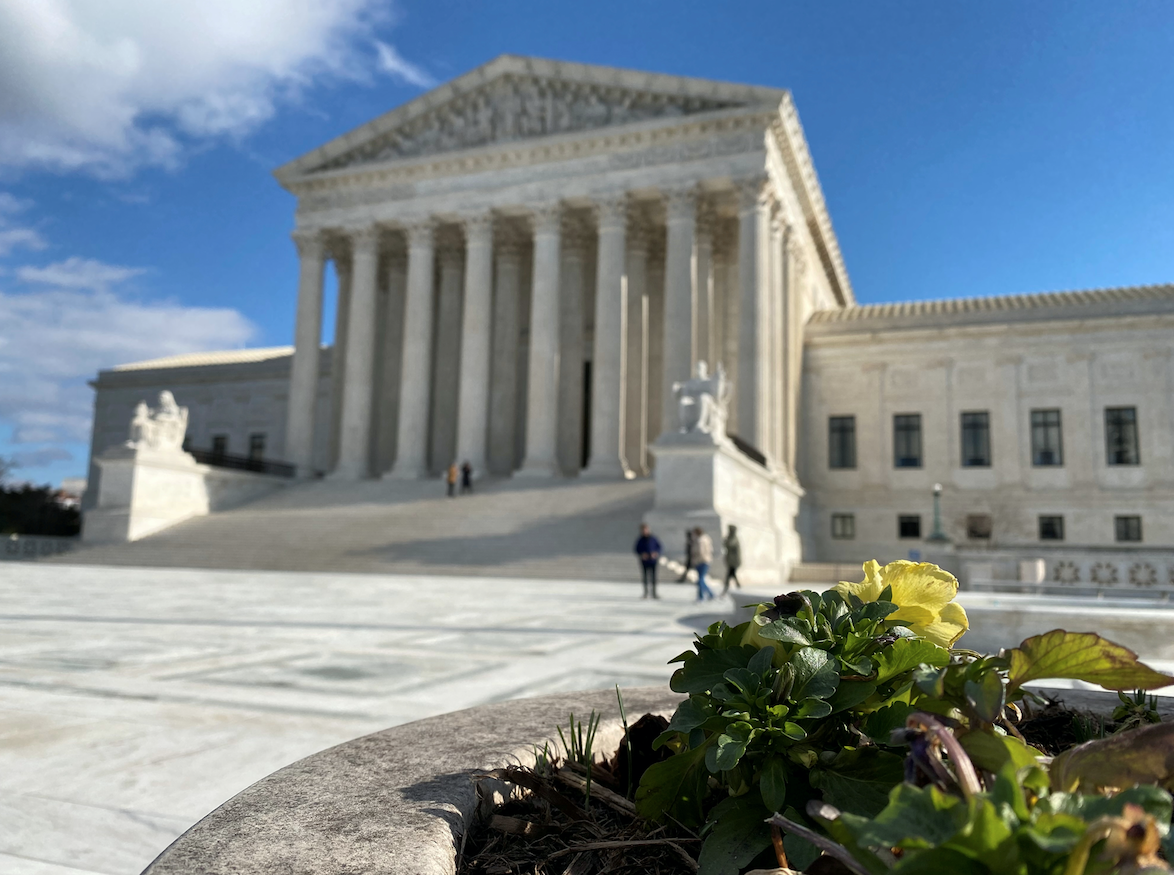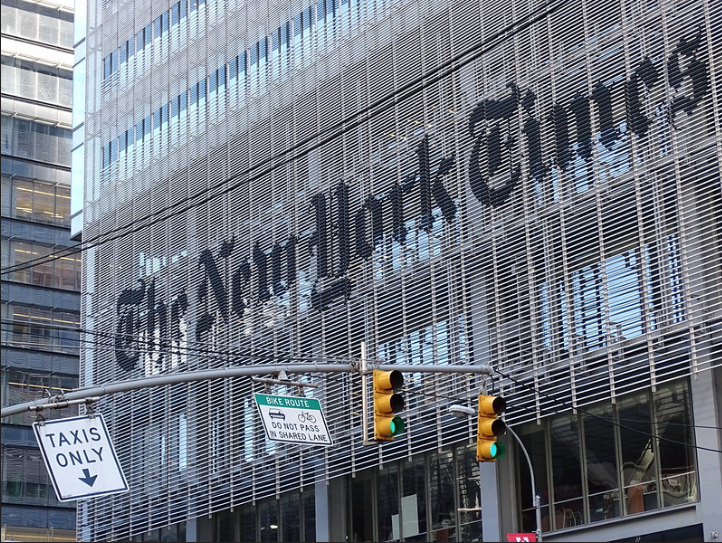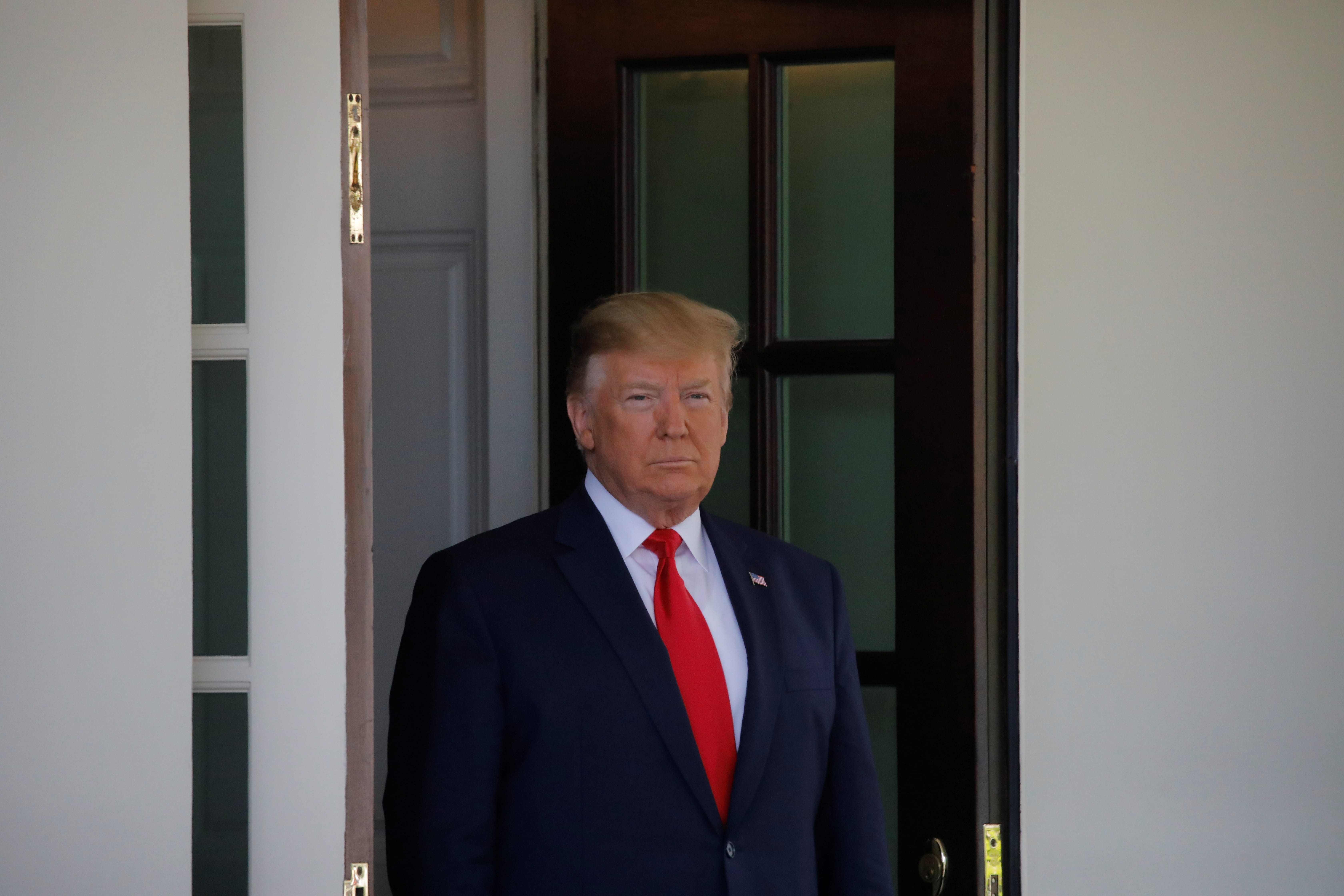After graduating from Harvard Law School in 1971, Professor Seidman served as a law clerk for J. Skelly Wright of the D.C. Circuit and U.S. Supreme Court Justice Thurgood Marshall. He then was a staff attorney with the D.C. Public Defender Service until joining the Georgetown Law Center faculty in 1976. He has been a visiting professor at Harvard Law School, The University of Chicago Law School, New York University Law School, and the University of Virginia Law School. He teaches a variety of courses in the fields of constitutional and criminal law. He is co-author of a constitutional law casebook and the author of many articles concerning criminal justice and constitutional law. His most recent books are On Constitutional Disobedience (Oxford, 2012); Silence and Freedom (Stanford 2007); Equal Protection of the Laws (Foundation 2002); and Our Unsettled Constitution: A New Defense of Constitutionalism and Judicial Review (Yale 2001). In 2011, Seidman was elected to membership in the American Academy of Arts and Sciences.
I am grateful to Floyd Abrams, Jane Bambauer, Ronald K. L. Collins, Richard Delgado, and John Paul Schnapper-Casteras for taking the time to comment on my article. I can’t possibly respond to all the perceptive points that they make. That’s true in part because doing so would require another article. I have to concede, though, that it’s also true because I’m not sure that I yet have worked out answers to all the criticisms that they advance. Their comments have made me think hard about my position, and – at least for me — thinking takes time.
In what follows, I have selected observations that I can currently respond to in ways that, I hope, advance this fruitful dialogue.
* * *
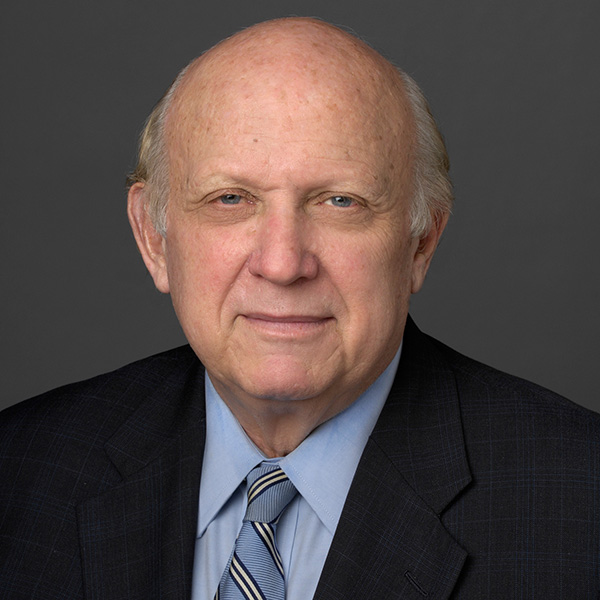
Floyd Abrams
I plead guilty as charged to two of the criticisms that Floyd Abrams levels against me. First, Abrams is correct when he says that some of my arguments are ones that “only an academic would proffer.” Perhaps I am mistaken, but I think I detect a similar concern behind John Paul Schnapper-Casteras’s assertion that my observations are out of touch with the real world experiences of litigators defending “activists, authors, and attorneys [who sparked] meaningful and lasting change”
I don’t think that Abrams offers his “only an academic” observation as a compliment, but I am going to treat it that way. I am proud of the fact that academics who are not immediately involved in the day-to-day struggle for justice do have the luxury of taking a longer view and the ability to see patterns and consequences that are not apparent to those in the trenches.
Whether or not Abrams and Schnapper-Casteras mean to compliment me, I want to compliment them. I greatly admire lawyers who use whatever legal tools are available to fight the messy, frustrating, and uphill battle for human dignity and decency. For reasons that Richard Delgado powerfully explicates, I think that Schnapper-Casteras somewhat overstates the extent to which free speech law has protected the activists that he venerates. That said, it would be a serious mistake to read anything in my article as denigrating the work that Abrams, Schnapper-Casteras and their allies do.
Second, Abrams is exactly right when he says that my intended audience is “progressive scholars, like [myself]” and that I have relatively little to say to people “who admire the sweeping protections the First Amendment afford to free expression” without regard to their political valence. As I tried to make clear, progressives and nonprogressives alike might appropriately treat free speech values as a side-constraint on their effort to achieve ideological victories. My article is addressed to progressives who think of free speech law not as a side constraint, but as an affirmative part of the progressive program. More specifically, my intended audience is people like Schnapper-Casteras and, to a lesser extent, Jane Bambauer, who argue that free speech law is an important part of the left’s legal arsenal.
* * *
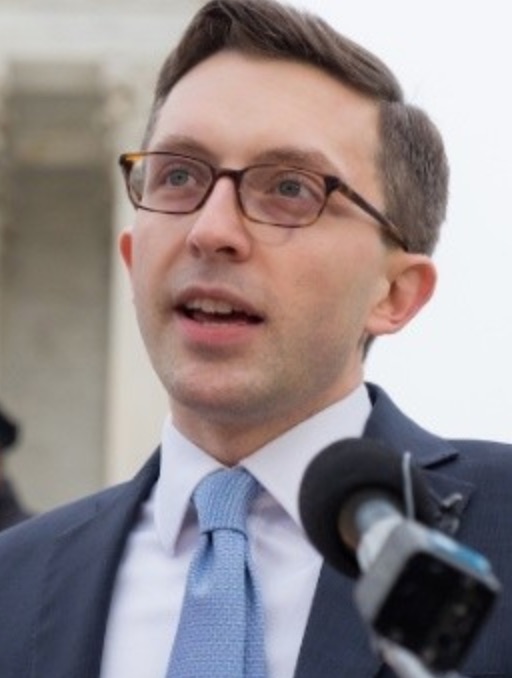
John Paul Schnapper-Casteras
John Paul Schnapper-Casteras claims that this is so “precisely because the integrity and neutrality of [free speech law] is legally and practically significant.” But this is a double game that, in the long run, the left cannot win. If free speech law is in fact neutral as between political outcomes, then it will not systematically tilt the political playing field toward outcomes that progressives favor. Suppose, conversely, that free speech law systematically favors progressives. I doubt that this claim is accurate. Schnapper-Casteras himself seems to disown it when he says that free speech law is “neutral,” although other parts of his comment can be read as embracing it. Even if it is accurate, though, a free speech strategy will work only if progressives somehow hide its valence from their adversaries in order to get their buy-in.
Suppose we put aside very serious questions about the morality and practicality of this project. It should be obvious to anyone who takes a hard look at facts on the ground that this is a scam that the right is currently using against the left, rather than the other way around. Whatever was true in the past, today it is conservatives who, over and over again, are utilizing the myth of free speech neutrality to defeat progressive programs.
In that regard, I am mystified by Schnapper-Casteras’s claim that my article “does not address the very real phenomenon of some conservative litigators using the First Amendment to encapsulate a broadening array of commercial speech and clients.” That is what my article is all about, and I offer many, many specific examples to support the claim that both Schnapper-Casteras and I make. The question that Schnapper-Casteras needs to ask himself is why progressives should support an ideology that makes this conservative strategy plausible.
* * *

Jane Bambauer
Jane Bambauer offers an intriguing response to this question. Part of that response is a claim that I am overstating the extent to which free speech law is harming progressive causes. She concedes that if I am right that “speech law is spilling over into traditionally non-speech domains and warping them into laissez-faire doctrines, . . . then the premise of Information Libertarianism would be wrong, and I would withdraw my advocacy of it.” But her thesis is not at risk, she says, because I have relied only on “oddball cases at the contentious edge of free speech.”
I suppose reasonable people could disagree about which cases are “oddball,” but, for me at least, the Supreme Court’s use of the first amendment to decimate public sector unions, campaign finance legislation, and regulation to protect consumer safety and welfare is more serious than that characterization would suggest.
Bambauer is nonetheless correct when she claims that the Court has not yet taken full advantage of the possibilities that free speech ideology offers for the right, and perhaps it never will. We are not yet in a new age of Lochner. (Indeed, as revisionist historians remind us, we were not in what is popularly imagined as the age of Lochner even during the age of Lochner.) For now, the Supreme Court generally treats property and contract rights as open to political revision except when the revision encroaches in obvious ways on speech.
But this compromise remains unstable. All first amendment freedoms are predicated on fixed property claims and any scheme of property distribution affects speech opportunities. For that reason, free speech law usually pushes in an anti-redistributionist direction. Moreover, it is important to remember that we are always in the middle of things. It is anyone’s guess what the Supreme Court will look like five years from now, and it is easy to imagine future justices taking advantage of the groundwork that has already been laid to dismantle the New Deal constitutional order.
These risks are important as background when we evaluate Bambauer’s ingenious defense of the proposition that “even the deepest blue liberal should be libertarian where speech is concerned.” I am ashamed to admit that I had not read her fine article that elaborates on this point before her comment brought it to my attention. Now that I have read it, I will have to think some more about the points that she and her coauthor raise.
Her principal thesis, which she presents in much shorter form in this comment, is that speech regulation is at once less effective and more problematic than direct regulation of the underlying activity. To make that claim plausible, she must disentangle speech libertarianism, which she favors, from garden-variety libertarianism, which she opposes. Put differently, she must explain why her criticism of speech regulation does not apply with equal force to economic regulation. If she fails to make this case, then she has not made good on her promise to explain to the “deepest blue liberal,” who will often favor economic regulation, why she should be a speech libertarian. People who take the trouble to read Bambauer’s article will have to judge for themselves whether she has in fact made out her case. For whatever it is worth, my own tentative conclusion is that she has not.
On Bambauer’s account, efforts to regulate speech “seethe with public choice and collective action problems.” Because the benefits of speech are diffuse while the benefits of speech regulation are concentrated, the political system regularly produces too much regulation and too little freedom. These problems are aggravated by cognitive biases that lead to “an exaggerated sense of risk paired with an immodest sense of regulators’ skill.” The result is a killing field for sensible public policy – a field littered with unintended consequences, premature stifling of innovation, and special interest capture.
All this may be true enough, but it should escape no one’s attention that these criticisms are standard fare for positive political theorists who advocate ordinary, and not just informational, libertarianism. Bambauer promises her readers that she will demonstrate that speech libertarianism is different, but she never really makes good on the promise. On the contrary, many of her examples cut in the opposite direction. For reasons of space, I will focus on only one of them here.
Bambauer accuses the Food and Drug Administration of regulating mobile health apps like 23andMe in a fashion that dampens innovation “before prospective consumers develop the demand for a service and the motivation to curb regulators.” Traditionally, the FDA has limited its regulation of medical devices to items that could be physically placed inside human bodies or treat patients in a medical setting. More recent FDA regulation of health apps, Bambauer claims, have crossed this barrier and infringed on free speech. And perhaps they have, but nothing about Bambauer’s critique depends upon the formal distinction between the regulation of “speech” and the regulation of the physical objects themselves. She offers no reason why all of her arguments would not apply with equal force if the FDA were regulating the physical implantation of health apps.
Bambauer’s article is too detailed and thorough for me to refute her claims with a single example. Moreover, it is important to emphasize that I offer no argument here that libertarians, either traditional or informational, are wrong and that progressives are right. My only point is that it is far more difficult than Bambauer imagines to disentangle speech libertarianism from ordinary libertarianism. If, as I suspect, that task proves impossible, then progressives who buy Bambaur’s argument will have to give up on their progressivism.
All that said, I agree with Bambauer’s ultimate point: progressives sometimes resort to speech regulation because “direct forms of lawmaking are untenable.” Just as she says, “[t]he problem is that progressivism is not popular.” It follows that progressives need to devote their energies to the hard political work that will make it popular. The basic point of my article is that reinvigorating free speech law will not accomplish that objective.
* * *

Ronald K.L. Collins (credit: Bruce Guthrie)
Ronald K. L. Collins asks the kind of thought-provoking questions that one would expect from someone who has devoted much of his professional career to incisive commentary on first amendment issues. Here, I will attempt to answer only a few of them.
Collins’ first query is also the most important. What, he asks, should we make of the culture of the first amendment? The question focuses our attention exactly where it belongs. Before there can be any hope of changing the law, we need to change the culture. Moreover, at first blush at least, there is reason to think that progressives can gain some traction in this area.
Consider, for example, the complaint on the left that the NFL has infringed on the free speech rights of players and the mirror-image complaint on the right that private universities are suppressing the speech rights of students. As a matter of law, these claims are nonsense. Well-established first amendment doctrine makes clear that the amendment applies only to government action. From that premise, it follows that it is the NFL that enjoys first amendment protection against government interference with its disciplining of players. That is because the NFL, rather than the players, “owns” the National Football League. It is worth emphasizing again that legal first amendment claims always depend on the kind of rigid property entitlements that progressives otherwise oppose. If the government were allowed to shift the property entitlement to the players, then they would be the ones whose first amendment rights would be at risk. As I tried to establish in my article, this limitation is not some minor detail of first amendment law; as things currently stand, it is the whole point.
But it doesn’t have to be the whole point forever. In a different cultural environment, different arguments will be on or off the table. We might imagine a progressive first amendment that was the enemy, rather than the handmaiden of private power. We might imagine government regulation of the NFL and of private universities as supporting, rather than restricting free speech.
Popular reaction to the NFL and to private universities suggests that cultural change of this sort is not completely unthinkable. What is unthinkable, though, is a fundamental revision of the law’s first amendment without a cultural transformation. The ideology of free speech law is deeply entrenched and has powerful defenders. And, as I have tried to explain, it is anti-progressive to the core.
No one should suppose that this legal ideology will be easily dislodged. Direct attack promises certain failure. The cultural and political groundwork must come first. Instead of a harbinger of things to come, a shift in the core premises of the law’s first amendment will be a sign that the battle has already been won.
Moreover, even on the cultural level, the very neutrality that makes free speech attractive also limits its utility in achieving progressive ends. If NFL players have free speech rights, then what about the free speech rights of Roseanne? I think that many progressives will applaud the decision of ABC and, perhaps, even claim that the cancellation of Rosanne’s show reflects a courageous assertion of ABC’s free speech rights.
As the Roseanne and NFL examples illustrate, both sides can play the free speech game. The examples also illustrate how few players are operating in good faith. Free speech culture is sufficiently elastic that Roseanne, ABC, the NFL, and the NFL players all can and do claim its protection. So how should the conflict be resolved?
There are a few free speech purists who think that somehow there is a neutral “right answer” to this question. For example, conservative commentator David French has noticed that his criticism of private universities for suppressing speech rests uneasily with a defense of the NFL for engaging in the same conduct. That conflict has caused him to criticize the NFL. This example provides some support for the proposition that free speech’s neutrality can produce a few progressive gains.
But in the face of deep indeterminacy and incoherence, most political actors are likely to use free speech as a cudgel to defend their own sides. Progressive advocates of free speech culture can make free speech arguments in favor of ABC and the NFL players, while conservative advocates of the same culture can make free speech arguments in favor of the NFL and Roseanne. Where does that get us? Both sides are being inconsistent, and if public debate respected a norm of consistency, both sides would have to back off their respective positions. But consistency norms are usually observed in the breach, and even if more people took them seriously, there’s no a priori reason to suppose that the conflicting positions would be resolved in a way that favored progressives.
Collins also asks “What is a progressive & when does one cease to be one?” and, relatedly, “Are the words progressive and liberal synonymous?” These questions are not merely about vocabulary; they implicate a complicated and contested history. Here is a brief summary of my version of that history.
In my article, I use the term “progressive” to refer to modern liberalism. In fact, though liberalism is an unstable amalgam of early twentieth century progressive and populist impulses. The amalgam is unstable because progressives and populists held incompatible views. Speaking very broadly, populists thought of government as a source of economic oppression. On their account, railroads, bankers, and the “interests” had seized control of the public levers of power. American populists favored direct popular democracy as a means of disciplining a government captured by plutocrats.
In contrast, progressives thought of government as a source of salvation. For them, the root of economic injustice was not the government, but defects in unregulated markets. They favored rule by an expert elite, shielded from direct popular control, who could control the plutocrats exercising private power.
To see the confusion that the melding of these two positions creates, consider the following two quotations from Bernie Sanders.
Quotation One:
[I]t doesn’t matter what party is in power because the real power, economically and politically, rests with a billionaire class. . . . It’s not the Republican Party, per se. It is not the Democratic Party, per se. It is the billionaire party, led by people like the Koch brothers and Sheldon Adelson. And they are the dominant political force in this country, because they can spend unbelievable amounts of money.Quotation Two:
A half-century ago, the United States established Medicare. Guaranteeing comprehensive health benefits to Americans over 65 has proved to be enormously successful, cost-effective and popular. Now is the time to expand and improve Medicare to cover all Americans.
One or the other of these statements might be true, but they can’t both be. If the government is really controlled by the Koch brothers and Sheldon Adelson (the populist view), then why would anyone want to turn over 18% of the American economy to government officials (the progressive view)?
Modern liberal views of free speech suffer from the same schizophrenia. People with populist sensibilities favored free speech rights to protect the people from the government. At least at the beginning, twentieth century progressives were hostile to free speech, precisely because they favored government as a means of shielding individuals from private power.
Modern liberals (whom I confusingly call “progressives” in my article) are heirs to both of these traditions, so where do they come out? Many of them trust government when it comes to economic regulation (the progressive view), but distrust it when it comes to speech regulation (the populist view). Perhaps it is possible to square this circle (Bambauer tries), but doing so will require some work. One might think of my article as an argument that modern liberals should start doing that work.
* * *
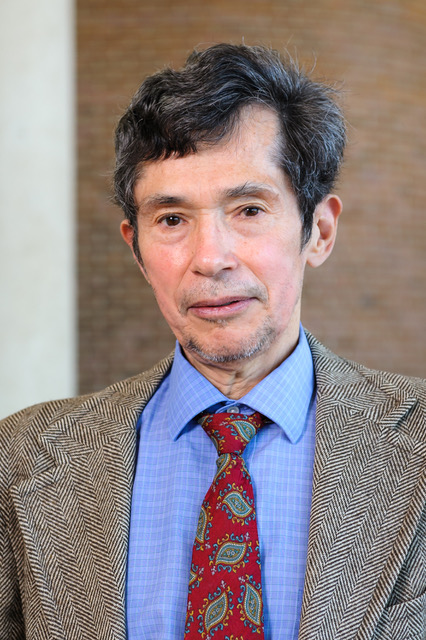
Richard Delgado
Finally, Richard Delgado usefully reminds us that all legal ideas are historically located. Principles that advance social justice in one era can retard social justice in another. He might have added another familiar and complementary point: what matters is not the law on the books but the law in action. For example, he is undoubtedly right that “oppressed people need safety and the opportunity to consolidate gains.” It is less obvious, though, that speech regulation provides them with that safety and opportunity. As Nadine Strossen carefully documents in her new book on the subject, there are plenty of speech codes that are counterproductive, whether because they are sloppily drafted, poorly administered or just plain foolish.
The hate speech example illustrates how difficult it is to assess what advances and what retards the progressive project. Another example is Delgado’s and Schnapper-Casteras’s strikingly divergent assessments of the role of free speech ideology in our current circumstances. Delgado argues that free speech was useful to progressives in the 1950s and 1960s but is not useful now, while Schnapper-Casteras wonders whether I wrote my article before the 2017 inauguration (I didn’t) because it is obvious to him that free speech rights are vital in the age of Trump.
For reasons I have already explored at length, I tend to side with Delgado. The more important point, though is that both Delgado and Schnapper-Casteras are asking the right question. Ultimately, it is not a first amendment question. Instead, it is a question about political tactics and we should stop pretending that it is anything else.
The real lesson from all this is that progressives need to keep their eye on the ball. They need to think carefully about the kind of society they want to create and the kinds of government policies that will move us in the right direction. They need to be pragmatic and flexible. Most of all, though, they need to steer clear of the dangerous illusion that immutable constitutional principles will solve our problems. Rooted as it is in deeply conservative ideology, free speech law will never substitute for the hard political work necessary to make our country more just, open, and free.
